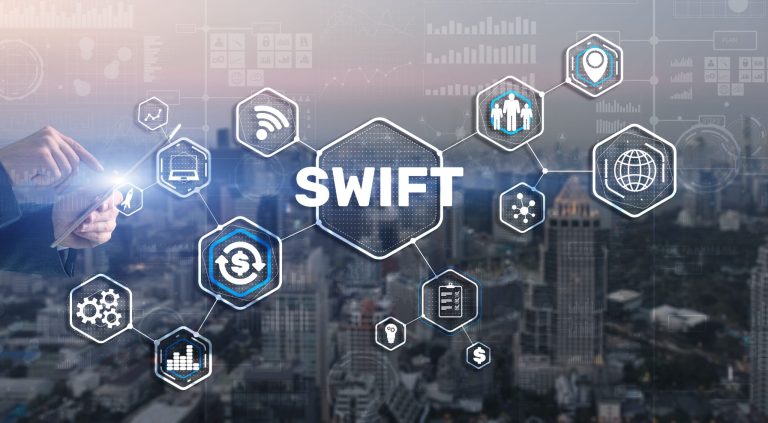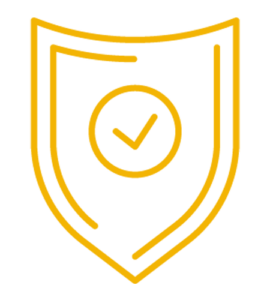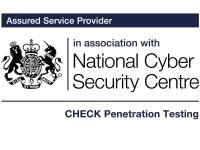
Shadow AI: The Untracked Risk in Your Digital Ecosystem

Changes in the SWIFT CSCF 2025: What You Need to Know

Today’s Aviation sector relies on a technology backed world. Maintaining safe, secure, and resilient operations is your focus and our number one priority when assisting Aviation organisations.
Contact our Aviation Cyber Security Experts
93%
A 2023 report found that 93% of cyber-attacks in the aviation industry were financially motivated, with 70% of these attacks involving ransomware or data theft aimed at extracting payment.
65%
In 2021, there was a 65% increase in reported cyber-attacks against the aviation sector, driven largely by the rise in ransomware attacks targeting airline systems and airports.
$12.6 billion
The global aviation cybersecurity market size is expected to reach $12.6 billion by 2026, growing at a CAGR of 15.5% from 2021 to 2026.
The aviation industry is subject to evolving cybersecurity regulations from organizations like the International Air Transport Association (IATA) and the International Civil Aviation Organization (ICAO). These continuous changes make it challenging for organizations to maintain compliance and adapt their cybersecurity strategies accordingly.
The aviation sector handles vast amounts of sensitive data daily, including passenger information and critical flight data. This makes it a prime target for cybercriminals seeking to exploit such information. The average cost of a data breach reached an all-time high in 2024, highlighting the financial risks associated with inadequate data protection measures.
A ransomware attack has the power to not only halt local airport operations but to disrupt international travel, costing millions for every minute of a delay. Data from the FAA indicates that delayed flights in 2019 cost the industry an average of $33 billion, with airlines, passengers, airports and associated third party providers all sharing the impact.
Employees, contractors, or third-party vendors with access to critical aviation systems pose a significant security risk. Whether intentional or accidental, insider threats can lead to data breaches and operational disruptions. With insider-related incidents rising 44% in two years, strict access controls and continuous monitoring are essential for mitigation
Dionach has assisted business to build strong foundations for security, compliance, and operational excellence for 24 years.
Services include:
The multi-faceted and multi-disciplinary nature of Aviation cyber security means that it is critical to develop a common vision for defining a global cyber security strategy. Aligning with local and international Aviation security and management provisions, your cyber security strategy should evolve around the following components –


Released in 2020 by the Civil Aviation Authority, CAA Assure is a third-party cyber security audit scheme that has been developed in partnership with CREST to provide rigorous and continuous audits to organisations in the Aviation sector.
As a regulatory responsibility, Aviation organisations must ensure they meet the oversight responsibilities that fall under CAP 1753 – ‘The Cybersecurity Oversight Process for Aviation’. This is a six-step approach to ensuring cyber security oversight for Aviation organisations operating within the United Kingdom.
These six steps include:
Released in 2020 by the Civil Aviation Authority, CAA Assure is a third-party cyber security audit scheme that has been developed in partnership with CREST to provide rigorous and continuous audits to organisations in the Aviation sector.
As a regulatory responsibility, Aviation organisations must ensure they meet the oversight responsibilities that fall under CAP 1753 – ‘The Cybersecurity Oversight Process for Aviation’. This is a six-step approach to ensuring cyber security oversight for Aviation organisations operating within the United Kingdom.










Dionach’s cyber security experts have a solid history of working with Civil Aviation and other transport sectors, delivering safe audits of critical Operational Technology (OT) and Process Control Networks (PCNs). As a trusted cyber security partner for Aviation organisations, our long standing 25-year background, combined with our in-house innovation and research team enable us to stay on top of the latest cyber security threats to Aviation and empower organisations to meet the rigorous requirements demanded by today’s complex technological infrastructures.
Get a Quote our Aviation Cyber Security Experts


